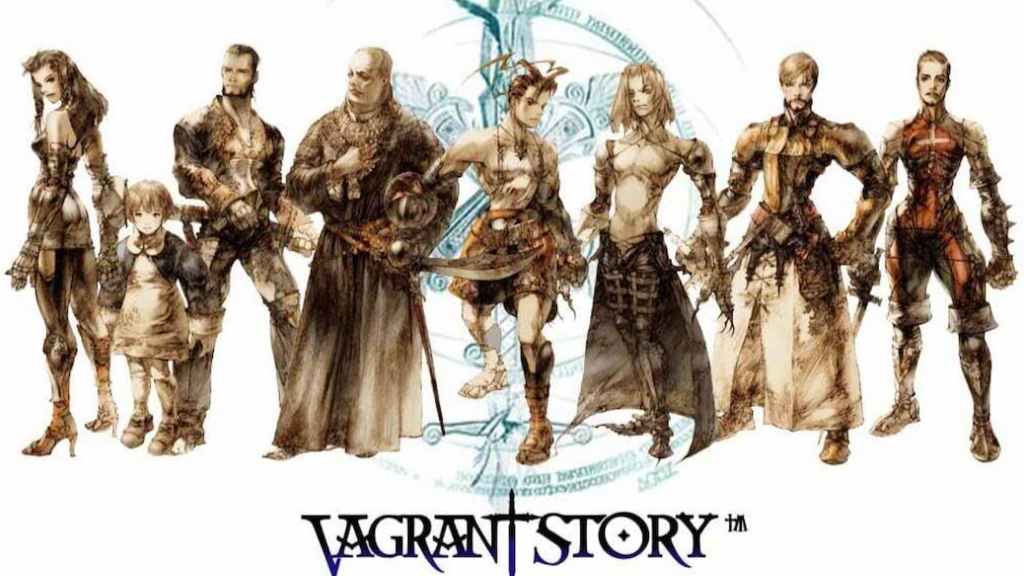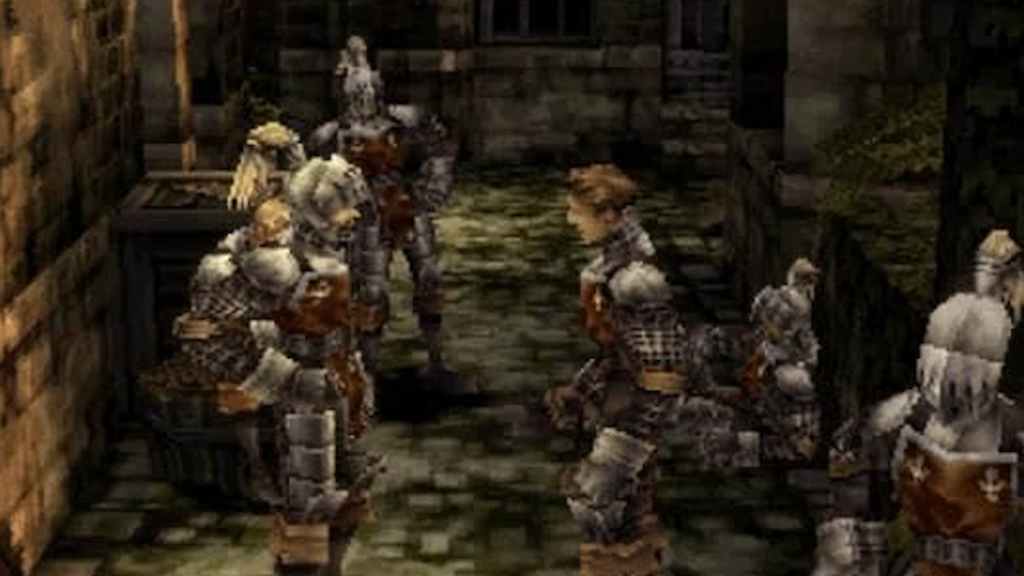When most players look back at the PlayStation era, many giants come to mind. Final Fantasy VII, The Legend of Dragoon, Suikoden II, Xenogears, and Dragon Quest VII are just a few of these. JRPGs in particular were hitting their stride here thanks to Square Enix’s legendary game starring Cloud and Sephiroth. Developers other than Square were taking advantage of the new powerful hardware to push the boundaries of what was possible with video games. With so many hit games released during this period, it is no surprise many fell through the cracks, including one Square Enix game that never got the acclaim it deserved.
Videos by ComicBook.com
One of Square Enix’s biggest experiments from this era has gone almost entirely ignored and I’m tired of it. Square Enix has poured more and more resources into remaking or remastering games like Final Fantasy Tactics, the Dragon Quest series, and of course, Final Fantasy VII Remake, but these aren’t the titles that need a remake now. It’s Vagrant Story.
Vagrant Story Is a Cult Classic That Deserves Modern Recognition

Vagrant Story is one of Square Enix’s most ambitious games. Even among its other core series like Final Fantasy and Dragon Quest, the storytelling and characters are deep and flawed. The heroes are questionable and villains empathetic. A gothic, intricate world where politics and religion are intertwined with magic create a story that was more concerned with power struggles than a hero saving the world. The contemporary elements were what made it stand out from other games on the PS1 because it wasn’t afraid to be complex, subtle, and different. Unfortunately, it did not have the Final Fantasy or Dragon Quest name to help it stand out.
The tale of Ashley Riot, Sydney Losstarot, and Romeo Guildenstern stays with me today. All three are at first presented in roles typical for a JRPG, but Vagrant Story quickly establishes their gray morality. Square Enix explored manipulation, duty, and identity through these characters like never before. What starts as a manhunt for the dangerous Losstarot backs one of conspiracy and questioning who truly holds power, blending a wider political story with a personal one.
By the end, Vagrant Story feels more like a Shakespearean tragedy than a typical JRPG. It’s heavy with themes of betrayal, destiny, and sacrifice that are brought to life in its dark fantasy world. The writing is deliberately ambiguous, constantly leaving the player questioning everything. Because of all this, I never understood how Vagrant Story didn’t get more recognition and how its legacy isn’t talked about more today.
Why Vagrant Story’s Combat and Story Were Ahead of Their Time

One of the most striking parts of Vagrant Story is its combat system. While other games of this time were using turn-based battles or real-time action, the ever ambitious and expanding Square Enix settled on something in between. A tactical, timing-based system that encouraged precision, planning and experimentation was a a bold choice and something unheard of in the late 90s. Players could chain together attacks, target specific body parts, and adapt strategies on the fly.
The combat system was brilliant, but failed to present it in an easy to understand way. Many players felt that it was clunky and unintuitive: and they’re right. Square Enix went too far with how layered and nuanced Vagrant Story’s combat was, or at the least failed to properly teach it. The ambition was in the right place but ultimately hurt the game. Considering this in addition to the cumbersome menus and steep learning curve, it’s no surprise that many dropped the game.
Equally ambitious to the combat was the narrative and storytelling. Vagrant Story offers layers of meticulous plot and world building. Players were dropped into a world without easy answers, where every character could appear right and wrong. At the time, I didn’t know how ahead of its time the writing was, but I appreciate it now, and I believe Square Enix could give Vagrant Story a much-needed second chance on modern platforms.
Quality-of-Life Fixes and Changes That Would Transform Vagrant Story

There is no denying Vagrant Story has a strong foundation, but there is also no denying it shows its age today. Inventory management is tedious, the graphics are dated, and the interface often works against the player. Combat remains clunky and far too demanding for newcomers. These are exactly the issues a remake could address without losing the original’s identity.
Quality-of-life improvements could make the experience accessible and better without watering it down. I want streamlined menus, smoother controls, and modernized graphics. The soundtrack would be perfect for a remake as well, though including the option to use the original is a must if it is remastered. But above all, the combat needs to be addressed, though I’d rather Square found a way to make it work without scraping it altogether.
We’ve seen Square Enix prove it knows how to handle remasters or remakes over the years, especially with Final Fantasy VII Remake. Vagrant Story doesn’t necessarily need such a big budget treatment, but the classic title needs more love than it has gotten. If Square Enix is willing to take a leap and give this PS1 legend a modern makeover, I believe it could be a crown jewel among its remakes.
What do you think? Leave a comment below and join the conversation now in the ComicBook Forum!









